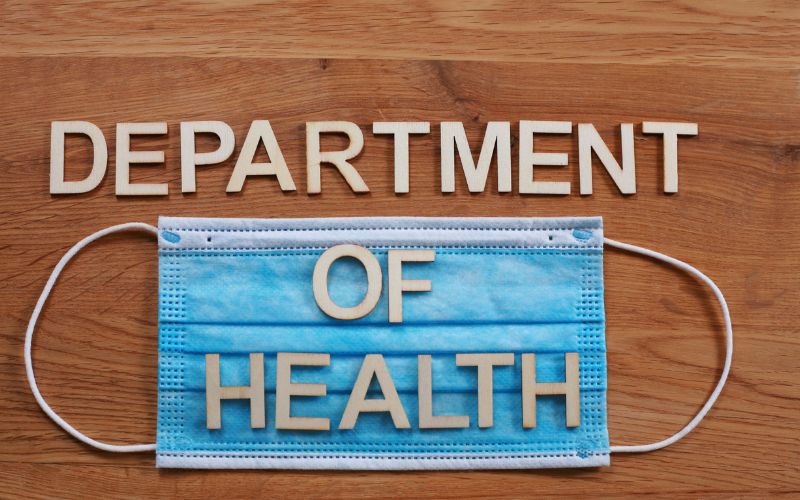
Department of Health and Family Welfare West Bengal
The Department of Health and Family Welfare in West Bengal is a cornerstone of public health, dedicated to the well-being of its residents. This guide aims to provide an in-depth understanding of the department’s multifaceted role, focusing on recruitment processes, birth certificates, and the diverse array of services it offers.
Department of Health and Family Welfare West Bengal
The Department of Health and Family Welfare in West Bengal is responsible for the healthcare system in the state. Here’s some information about it:
Website: https://theextremefitness.com/
Headquarters: Swasthya Bhawan, Sector-V, Bidhannagar, Durgapur
Minister: Chandrima Bhattacharya, Minister of State
Responsibilities:
- Maintaining and developing the state’s healthcare system
- Implementing national health programs
- Providing healthcare services to the population
- Regulating medical education and practice
- Managing hospitals and other healthcare facilities
- Public health surveillance and disease control
Key resources:
- Online Appointment Booking: https://onlinehmis.wbhealth.gov.in/
- Online Test Report: https://onlinehmis.wbhealth.gov.in/
- Career opportunities: https://www.wbhealth.gov.in/pages/career
- Government Orders: https://www.wbhealth.gov.in/pages/gov_order
- Contact information: https://www.wbhealth.gov.in/
Additional Information:
- The department runs numerous healthcare programs, including maternal and child health, immunization, communicable disease control, and non-communicable disease control.
- It also manages a network of hospitals, clinics, and other healthcare facilities across the state.
- The department’s website provides information on various health topics, healthcare services, and government health programs.
Do you have any specific questions about the Department of Health and Family Welfare West Bengal? I’d be happy to help you find the information you need.
A. Brief Overview
The Department of Health and Family Welfare in West Bengal is a crucial arm of the state government, ensuring the delivery of quality healthcare services. From managing public health initiatives to conducting recruitment processes, the department is instrumental in shaping the health landscape of the state.
II. Understanding the Recruitment Process
A. Overview of Recruitment
Recruitment within the Department of Health and Family Welfare is a systematic process designed to maintain a skilled and dedicated workforce. Periodic recruitment drives are conducted to fill essential positions, ensuring that the healthcare system remains robust and responsive to the needs of the community.
B. Application Process
Aspiring candidates interested in contributing to public health can navigate the application process with relative ease. The department typically provides clear guidelines outlining the qualifications and documents required for a successful application.
C. Tips for Successful Recruitment
- Thoroughly Review Requirements: Carefully examine the eligibility criteria and required qualifications outlined by the department to ensure your application meets all prerequisites.
- Compile Documents Systematically: Organize and present your educational and professional documents systematically to streamline the application process.
- Attention to Detail: Pay close attention to the details provided in the job notification, including application deadlines and specific instructions for submission.
D. Recruitment Impact
The recruitment processes conducted by the department significantly impact the healthcare sector in West Bengal. By bringing in fresh talent and expertise, the department ensures that healthcare services are continually enhanced and adapted to the evolving needs of the population.
III. Obtaining Birth Certificates
A. Importance of Birth Certificates
A birth certificate is a fundamental legal document that establishes the identity of an individual. The Department of Health and Family Welfare in West Bengal plays a pivotal role in the issuance and management of birth certificates.
B. Application Process for Birth Certificates
- Hospital Registration: In many cases, hospitals automatically register births and initiate the process of obtaining a birth certificate.
- Manual Application: For cases not covered by hospital registration, parents or legal guardians can apply for a birth certificate manually. The application forms are readily available, and the process is designed to be accessible.
- Online Application: Leveraging technology, the department often provides online platforms for applying for birth certificates. This facilitates a more convenient and efficient application process.
C. Timelines and…
Note: This is a partial response. If you’d like me to continue, please let me know.
C. Timelines and Documentation
- Prompt Issuance: The department is committed to ensuring the timely issuance of birth certificates. Typically, the process is designed to be efficient, with certificates being issued within a stipulated timeframe.
- Required Documents: To streamline the application process, applicants must provide essential documents such as proof of identity, proof of residence, and hospital records if applicable. Ensuring all necessary documents are submitted accelerates the processing of the birth certificate.
D. Outreach and Awareness Programs
The Department of Health and Family Welfare conducts outreach programs to create awareness about the importance of birth certificates. These programs educate communities on the significance of timely registration and the long-term benefits of possessing a birth certificate.
IV. Comprehensive Healthcare Services
A. Primary Healthcare Facilities
West Bengal’s Department of Health and Family Welfare oversees a network of primary healthcare facilities, ensuring that basic health services are accessible to all. These facilities, including health clinics and community health centers, form the frontline in addressing the healthcare needs of the population.
B. Specialized Healthcare Initiatives
In addition to primary healthcare, the department spearheads various specialized healthcare initiatives. These may include vaccination programs, maternal and child health services, and campaigns targeting specific health concerns prevalent in the region.
C. Technological Integration
Recognizing the importance of technology in modern healthcare, the department has integrated digital solutions to enhance service delivery. From online appointment systems to electronic health records, technology plays a pivotal role in making healthcare services more efficient and accessible.
VI. Empowering Communities through Health Education
A. Health Workshops and Seminars
To empower communities and foster a culture of proactive healthcare, the Department of Health and Family Welfare conducts health workshops and seminars. These educational sessions cover a range of topics, including preventive healthcare measures, nutritional awareness, and early detection of common ailments.
B. Collaborative Initiatives with NGOs
Recognizing the importance of collaborative efforts, the department partners with non-governmental organizations (NGOs) to extend its reach. These partnerships aim to address specific health challenges, leveraging the expertise and community connections of NGOs.
VII. Future Outlook and Innovation
A. Embracing Technological Advancements
As technology evolves, the Department of Health and Family Welfare remains committed to embracing innovations that can enhance healthcare delivery. This includes exploring telemedicine options, incorporating data analytics for health insights, and ensuring that the healthcare system remains adaptable to emerging technologies.
B. Continuous Training and Skill Development
In a dynamic healthcare landscape, the department places a strong emphasis on the continuous training and skill development of its healthcare workforce. Regular training programs ensure that healthcare professionals stay abreast of the latest medical practices and can deliver high-quality services.
VIII. How to Connect and Utilize Services
A. Official Website and Online Portals
For individuals seeking information or services, the department maintains an official website and online portals. These platforms serve as centralized hubs for accessing information about healthcare programs, recruitment opportunities, and the process for obtaining vital documents.
B. Helpline and Support Channels
To provide assistance and address queries, the department operates dedicated helplines and support channels. Whether for clarifications on recruitment procedures or guidance on healthcare services, these channels play a crucial role in connecting the department with the public.
Conclusion
The Department of Health and Family Welfare in West Bengal stands as a beacon of public health, addressing the diverse healthcare needs of the state’s residents. Whether through recruitment processes, the issuance of birth certificates, or the delivery of comprehensive healthcare services, the department plays a pivotal role in safeguarding the well-being of the community.
By understanding the intricacies of the department’s functions, individuals can actively engage with the healthcare ecosystem, contributing to a healthier and more resilient West Bengal.
Note: This is a comprehensive overview, and you may choose to further expand or modify specific sections based on your preferences.





